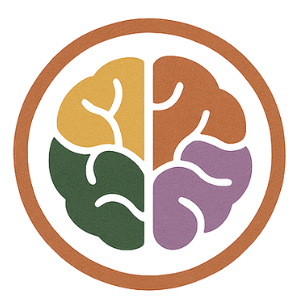The Prison of Perceived Rejection: Learning to Live With RSD
I’ve been dealing with rejection sensitivity dysphoria (RSD) my entire life, even with no awareness of what RSD was.
My thoughts would be filled with ill-perceived problems involving a relationship with someone I'm interested in getting to know. Entire scenarios would unfold in my head for days or even weeks, and all this would happen before I ever said hi to the person. Which would often cause me to never dare begin a friendship because I would see the rejection as inevitable. RSD kept me from making friends for most of my life.
I've been looking into RSD with how it relates to autism and ADHD. This symptom manifests as extreme emotional pain triggered by perceived rejection, causing pain so intense that researchers have found it activates the same brain circuits as physical pain. I experienced rejection often as a child, amplifying the years of autistic burnout I’ve dealt with as an adult. Therapy has allowed me to start experiencing less of the extreme dysphoria part of rejection sensitivity. I can still take rejection hard and catastrophize when not appropriate. I'll still imagine an inevitable rejection when there is no evidence to support my concern. Or I'll perceive connection problems in a relationship as my fault, even when I’m not at fault. But now I’m able to step back, look at the situation with a more healthy perspective and pull myself out of that toxic mindset quicker.
One of the strong drivers for RSD is rooted in negative self-talk with the slightest rejection feeling like confirmation of inadequacy and rumination becomes a feedback loop reinforcing the entire process. This is where therapy has helped me the most. Kayla, my therapist, has helped me to see that looking at myself through a dark lens has been very damaging to me. Through positive self-reflection and compassion, the dysphoria part of my RSD has been diminishing. Having a nervous system hyper-focused on social cues, I’ll likely never be free from rejection sensitivity, but I’m finding ways to manage the impact it has on my life.
Rejection sensitivity can affect me even with people I'm not interested in creating strong relationships with. For example, I make sure I am tolerated by the people I work with, if not liked. To some extent I still strive for that ideal, but I've had to learn when to abandon the need to appease. I know there have been plenty of people in my past that didn't like me, but if I could discern as to why, it would be easy to let it go. Not everybody is meant to get along.
I'm going to lay out two examples of people that I've had to "let go" mentally and emotionally:
Let's start with my sister. Throughout my life, she's either tolerated my presence or refused to acknowledge my existence. When I quit drinking at 42, I decided to work on our relationship. I'd call her often, listening while she talked and rarely the other way around. In my mind, we were getting closer. Classic RSD - I was so desperate for connection that I mistook one-sided conversations for relationship-building.
When I realized I'm autistic at 46, I opened up to both my father and sister. My dad's been supportive of everything since I quit drinking, including my autism and ADHD. My sister? She refused to speak to me for six months. My RSD went into overdrive and I was devastated.
Six months later, she called on my birthday like nothing had happened. Even now, ten months after my ASD diagnosis, she's never acknowledged what happened. By then, I realized my sister's opinion no longer mattered. When I ceased making an effort, she clearly didn't mind. With Kayla’s help, I began recognizing these patterns elsewhere.
I have a coworker that for some reason, does not like me. He has had a problem with me from the first time he laid eyes on me. When I first met him, I just assumed that’s how he was with everyone, [some people just have a grumpy demeanor]. However, with others he would smile, laugh, and generally treat them with respect. When I interacted with him, he clearly had an issue with me. No matter how nice I was to him, he would ignore me. This situation bothered me for several months, but with support after a while I realized that his behavior was not my responsibility.
Learning to live with RS rather than RSD has helped me understand this quote better:
“You must develop the ability to be disliked in order to free yourself from the prison of other people’s opinions.” – Mark Manson.
For RSD, I would reframe the quote like this:
“You must develop the ability to be disliked in order to free yourself from the prison of your perception of other people’s opinions.”
My sister’s opinion and my coworker’s micro-aggressions have stopped mattering, not because I stopped caring entirely, but because I finally understood that my perception of their opinions was causing more damage than their actual opinions ever could.
A lifetime of dealing with RSD made it difficult for me to accept a clear pattern of behavior with someone I believed should be important. With this experience put into focus, it’s become easier for me to see destructive patterns with others. It still hurts when I experience real rejection, but that pain doesn’t last nearly as long. Simply being aware of RSD and its impact on my life helps me find healthier ways to move on.
Come as you are, take what you need. I’ll be here.
